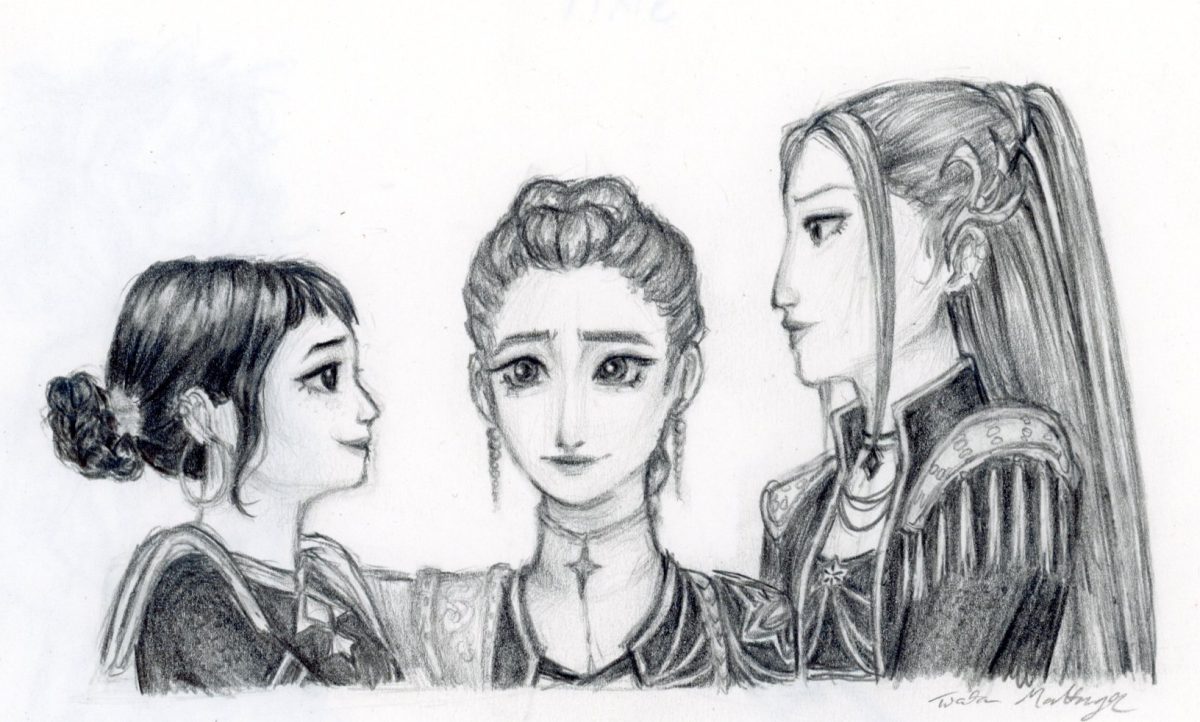
Walking into the theater to see Tenet, I was fully expecting to walk out feeling perplexed and contemplative the rest of the night, as Christopher Nolan’s films are literal puzzles, constantly playing with the idea of time, in addition to astonishing visuals and special effects. After seeing incredible films like Inception (2010), and Interstellar (2014), along with the critical acclaim Nolan has received over the years, I had nothing but high hopes for Tenet, but as the movie went on, I felt less and less impressed, and more and more disappointed.
Explaining a Christopher Nolan movie is nearly impossible, but the general plot of Tenet follows an agent, known as “The Protagonist,” played by John David Washington, and his bizarre mission to stop World War III from happening. The Protagonist is joined by his trusty sidekick Neil, played by Robert Pattinson. Both characters then grasp contact with the villainous Russian arms dealer called Andrei, and his wife Kat, who is unfortunately in an abusive relationship and is forced to stay in the marriage for the sake of keeping their son.
Tenet manages to confuse the viewer in the worst way possible. Knowing Nolan, I wasn’t expecting a straightforward screenplay that doesn’t make the viewer become the detective, but if a film requires the viewer to partake in extensive research just to barely understand the message of the movie, it can’t simply be written off as “complex”, It is simply incoherent. Tenet’s plot is incredibly messy, and jumps around through time and plots to the point of madness, to where it becomes frustrating to watch. Tenet lacks an emotional core. It is seriously hard to become attached to any of the characters on the screen without tone or a basic storytelling structure. It was almost as if Nolan tried to fit as much of a plot in two and a half hours that it is literally inconceivable.
Besides my problems with the story of Tenet, I also came across a multitude of technical problems with the movie. Although a Nolan trademark is a loud, anxiety-ridden score blaring in the background of the movie, the dialogue in Tenet was impossible to follow. The sound mixing drowns out any discourse between characters, and even if you are lucky enough to hear what the characters are saying, it will most likely add to the confusion of the story, or whatever story you are trying to grasp onto. The editing is embarrassingly bad for a blockbuster, as Tenet often feels like an assault of random clips and sound that you will have to fumble around with to make any sense of what is happening on the screen.
Tenet wasn’t completely unbearable, however. Washington and Pattinson’s performances were decent, and the visual effects were gorgeous and exciting as usual. A pro of having an obnoxiously loud score is that the gunshots and punches sounded great in the theater. I thoroughly enjoyed feeling my seat shake as I watched the intense fight scenes play on the screen. Even with the incomprehensible plot, the action scenes were very entertaining. Seeing some good old-fashioned punches thrown caught my attention for moments, during the time not spent trying to understand everything that happened in the first hour.
Leaving Tenet, I ended up feeling completely dissatisfied and irked. The entire movie felt pretentious and disjointed, almost as if it were a last-ditch effort to throw a movie out as soon as theaters began to open up in the United States. It would be surprising if anyone finished this film without a headache from the nauseating score and from the complicated plot Tenet desperately tried to tell. Nolan’s fan base will try to say “You don’t need to understand it for it to be good” and claim that the complexities of Tenet are genius, when the fact of the matter is that just because a movie is convoluted, doesn’t mean it’s brilliant. With characters lacking emotional depth, glittering special effects, and inaudible conversation, you are left with a poorly executed mess of a movie that you will probably forget about on the way home.






